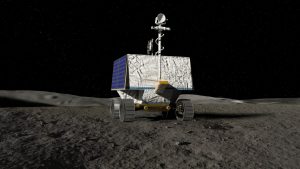NASA’s Parker Solar Probe : In News

NASA’s Parker Solar Probe recently set a historic record by flying closer to the Sun than any other man-made object, reaching speeds of 430,000 mph and withstanding temperatures up to 982°C.
- It was Launched in 2018, a car-sized robotic spacecraft, is named after American solar astrophysicist Eugene Newman Parker.
- This is the first NASA mission named for a living researcher and it’s humanity’s first mission to explore within 3.8 million miles of the Sun’s corona.
- The Probe uses an advanced carbon-composite heat shield to withstand extreme temperatures.
- The Parker Solar Probe aims to approach within 6.5 million kilometers of the Sun to study energy flow, solar corona heating.
- It also investigates the source of solar winds, high-speed streams of charged particles that affect space weather.
- To investigate the Sun’s corona, and understand why it is hotter than the Sun’s surface, a long-standing mystery in astrophysics.
- To determine the structure and dynamics of the plasma and magnetic fields at the sources of the solar wind.
- To explore mechanisms that accelerate and transport energetic particles.




